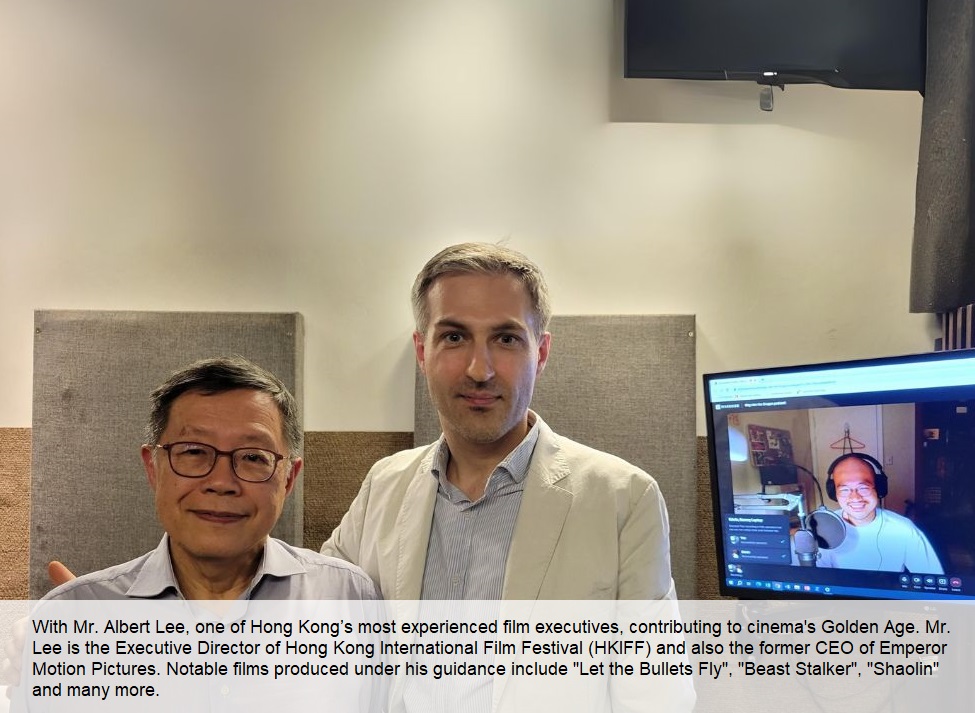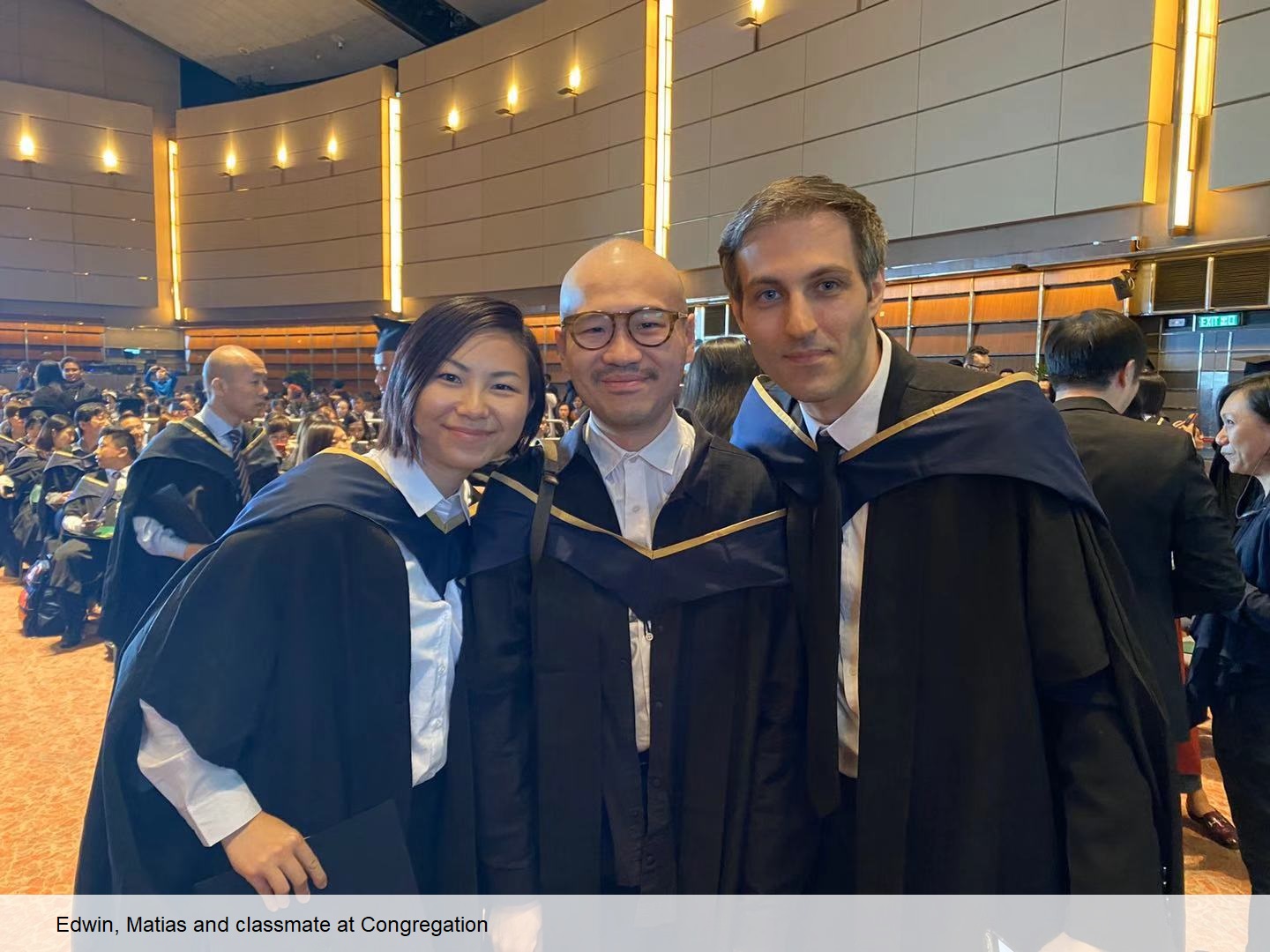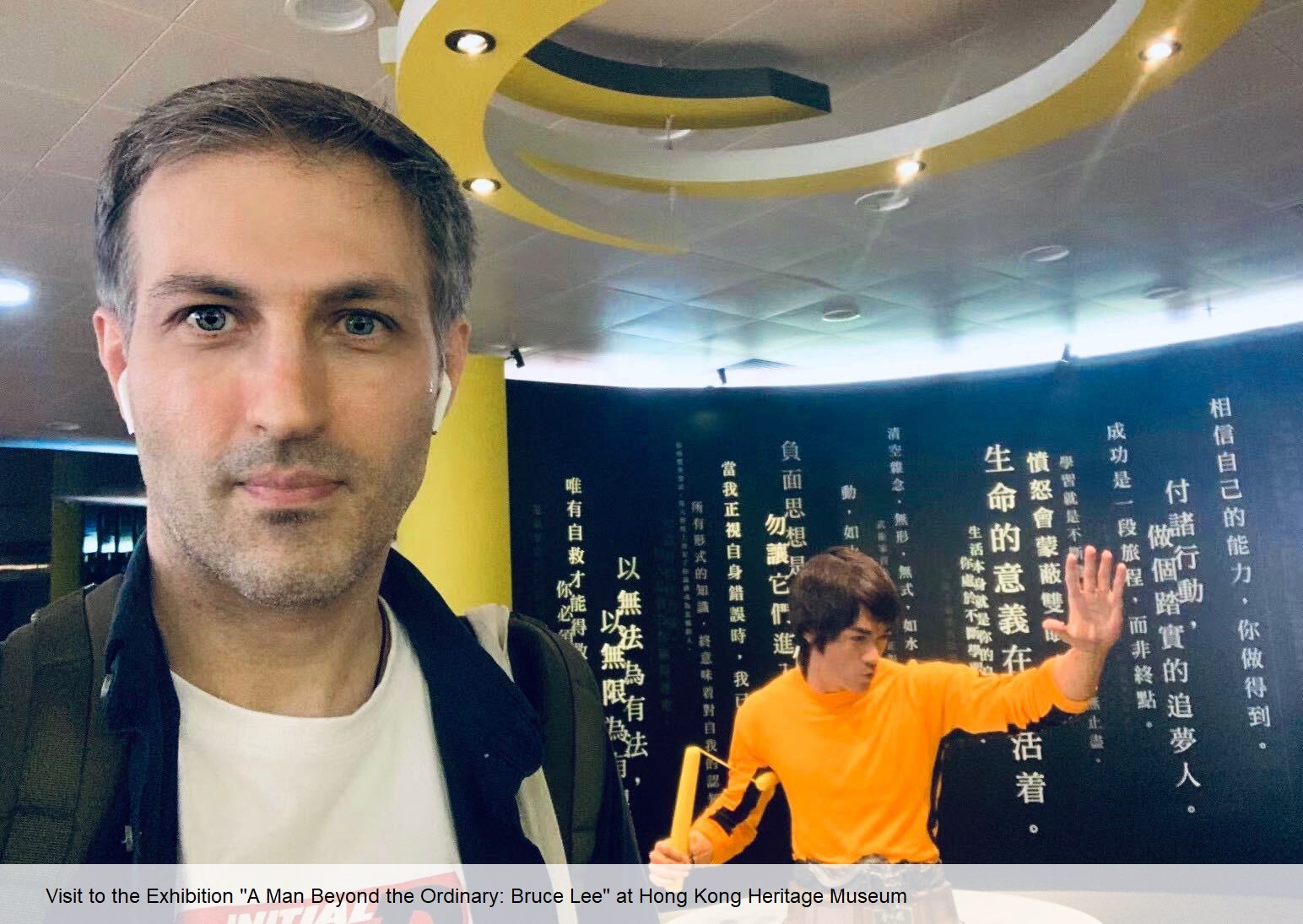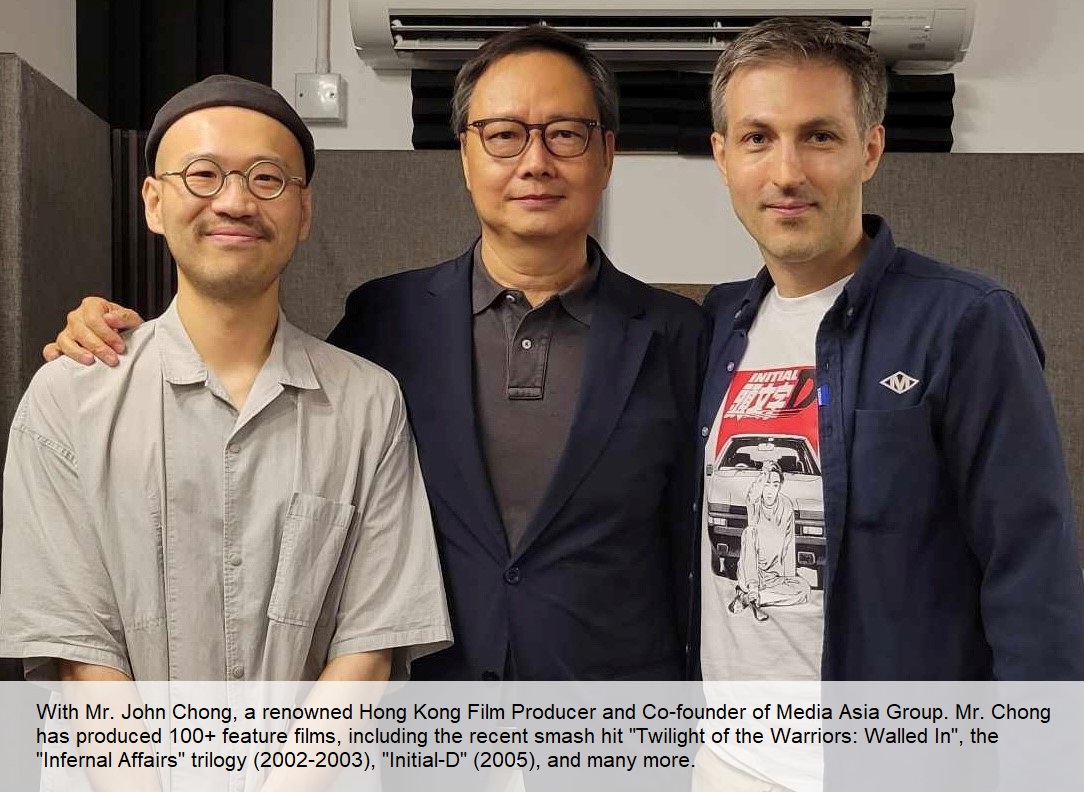Knowledge Exchange
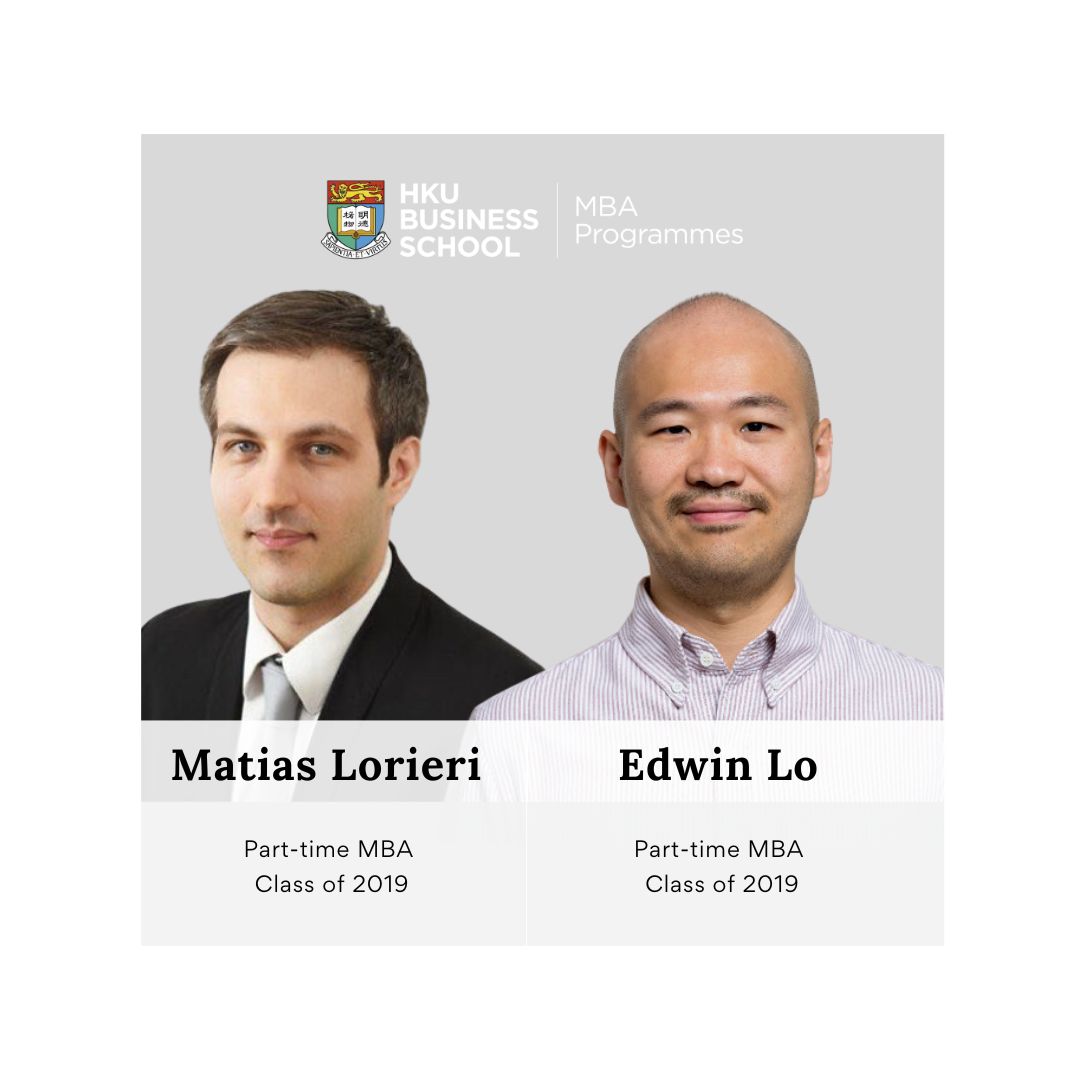
Alumni Business Talk: Hong Kong's Return to the Global Stage as a Cultural Hub
[10 mins read]
Hong Kong has been working to establish itself as a global culture hub. With its rich cultural tradition, the city has promising potential.
This month, we sat down with Edwin Lo and Matias Lorieri (MBA, Class of 2019) to talk about their experiences within the culture sector, as well as Hong Kong’s future in this industry.
Edwin Lo
Edwin is a bilingual and bicultural marketing and business development professional with over ten years of experience in the music industry. With global connections in the entertainment, media, arts, and cultural industries, Edwin now advises on music licensing, rights acquisitions, digital marketing, and writing and editing.
Matias Lorieri
Matias is a polyglot Business Strategy Consultant, who gained his professional and academic experiences across Europe, North America & Asia. He has over 15 years of experience in driving winning business and marketing strategies in the consumer goods & service industries. Having lived and worked in China for over a decade, Matias now provides China market entry advice for both entertainment companies & SMEs in consumer goods.
Getting into the Culture & Entertainment Business
Edwin: “I was born in the U.S., but I went to school in Hong Kong. When I was in Hong Kong, I was really interested in a lot of independent and alternative music, which shaped my identity.
I started a blog writing about independent music here. As I continued growing the blog, clients came to us and it became bigger.
I then co-founded Ear Up Music, which helped a lot of independent musicians navigate the business side of music – as well as bringing them to play across the globe.
The business of music is very complex; you have to learn by doing. You have things like publishing, recording, mechanical rights and so on. I’m very fortunate to be able to have experienced both sides of the industry, as a passionate hobbyist, who also has experience of the business side from my time working at Universal Music.”
Matias: “I have always had a fascination with Asian cultures and the film industry. I’ve watched a lot of Hong Kong and other Asian films, which developed into an interest in Chinese culture. I started to read more about Chinese history, Chinese art and ink painting.
I was looking for ways into the film industry and started to network within the vibrant filmmaker community in Guangzhou and the film industry in Hong Kong. At the end of December 2020, I joined the production of Bona film Group’s ‘The Battle at Lake Changjin’, working in project management for a group of international action team members.
This has helped me make a lot of important connections in the industry. I’m currently also working on a project for a film studio in Hollywood that is trying to co-produce here in Mainland China and in Hong Kong. And I am also working with my filmmaker friend in Guangzhou on an independent film project.
Networks are important and the podcast I did with Edwin – “The Way Into the Dragon” – is a part of that.”
The Story Behind the Podcast: The Way Into the Dragon
Matias: ” We put together this eight-episode kind of crash course on Hong Kong cinema together with Celestial Tiger Entertainment during our spare time. It was not easy because we had multiple parties involved. We were in different places around the world – different time zones. We were all driven by our strong passion for films.”
Edwin: “We bonded together back in the MBA days. Matias is Italian, but he knows so much about Hong Kong films and you can really feel his passion.
We happened upon an opportunity to work with a Hong Kong based media company to produce a podcast series promoting Hong Kong films to an English-speaking audience. To anchor and differentiate the podcast from other shows out there, we decided to lean into it from a cultural perspective. These are Hong Kong films – can we just totally detach them from their cultural context? We don’t think so. We wanted to connect our personal background with these films. We hope to encourage more people who identify with us to go back and check some of these films out. It was just a really fruitful and very fun project.”
Pursuing the Entrepreneurial Path
Matias: “For me, it all started by coincidence rather than intentionally.
Prior and during my MBA, I worked for Piaggio Group, heading the marketing department as well as accessory sales for the China market. Before that, I was in business and brand management for the beverage division of Jebsen Group. Towards the end of my MBA, an ex-colleague and I were approached by a former corporate client about working for him on the market entry for his new ice cream brand. The client was very satisfied with the work we did for him, which developed into further consulting work. This freelance work then also expanded to the aforementioned entertainment sector, which is where my passion lies.
Luck is really when preparation meets opportunity. You need to be working towards something, so that when the opportunity comes, you are ready for it. There’s no formula.
Having a financial safety net is obviously also important when exploring one’s passion. The freelance consulting work and also the part-time lecturing I took on at Guangzhou College of Commerce provided that safety net.”
Edwin: “It’s a good idea to look for a niche where there is a need for a certain type of service. For me, that is in terms of licensing music and offering music from around Asia to people in the U.S.
Going on the entrepreneurial path is always going to be a risk. You have to first establish that there is a market, and then you have to grow that market. It’s always going to be a harder path than just sticking with a nine to five. It’s dangerous if you don’t have a business plan.
We always focus on the successes we’ve had, but much of the time you’ll have to deal with failure, find a way to pick yourself up and continue down that path.”
Hong Kong’s Return to the Global Stage as a Cultural Hub
Matias: “As a Westerner, I have always looked at Hong Kong as a very special place. There’s such an amalgamation of cultures. The strong cultural and entertainment DNA that the city has is sometimes overlooked. The city has got really world-famous and influential filmmaking and acting talent, which means tons of potential.
I think that in addition to keeping the global fan base satisfied, local filmmakers have also succeeded in making Hong Kong filmgoers rediscover their love for local cinema and understand the potential the industry has. Last year was the first time that a Hong Kong film, “A Guilty Conscience”, topped the box office since 2005, when Media Asia’s “Initial-D” earned the top spot. Another Hong Kong film, “Table for Six 2’ has been at the top spot so far this year.
In 2023, out of the 77 co-productions that were approved, 60 were with the Chinese Mainland, which means only 17 were international co-productions. Obviously, it’s not just a matter of quantity, but this is still a relatively small number. There’s still a lot of room for Hong Kong to expand and create more visibility for its film industry abroad.
We need to build more extensively on Hong Kong’s cultural DNA: the current and the past film industry, the Cantopop heritage, the music, the international cuisine, the architecture, and the top universities – there is such a great mix of so many different aspects of culture.”
Edwin: “There’s just this treasure trove of great things from Hong Kong that should be revisited more. We need to not only look forward but sometimes look backward and celebrate those successes, instead of focusing on a lot of uncertainty in the future.
In the eighties, Cantopop was celebrated across the globe. But now, it’s K-pop that has gone global and Cantopop is not really on the radar.
In the US, there’s been a rise in the popularity of regional Mexican music. There are musicians like Peso Pluma, who’s music does extremely well in the West, but he sings in Spanish and represents regional Mexican music. Even though Latin music has always been big, it’s interesting to see how this subgenre is going global just in the same way as K-pop has now become a global force.
The same idea can be applied to Hong Kong, and we need to focus on what resonates with a global audience. Is there anything in Cantonese music or Chinese music that has a similar appeal? Because of technology, anybody from anywhere in the world can reach any type of media they want. A lot of borders have broken down and there are many opportunities in Hong Kong to reclaim some of that glory. The future is bright.”
Realising Hong Kong’s Potential
Matias: “The city is signaling the importance it is attributing to the cultural and creative sector with its HK$4 billion+ budget allocation for 2024. That is more than double the US$200million+ (approximately HK$1.6 billion) a financial and cultural hub like New York allocates in 2024.
With their 4.5% contribution to the GDP of Hong Kong, the cultural & creative industries still have space to grow, in particular the film production sector. The limited size of the domestic market, makes the Hong Kong film sector dependent on revenue from other markets. Fostering growth of start-ups in key areas (e.g. virtual production) & co-productions can help the local film business expand further both into Mainland China as well as other Asian and overseas markets.
Developing the right infrastructure helps to create an environment that will attract content producers & investment from the Chinese Mainland and other parts of the world. For example, the Hong Kong Design Institute recently opened an LED virtual production studio at Shaw Studios. These facilities are second-to-none in the Greater Bay area. An increased international focus is also visible via initiatives such as the Hong Kong-Europe-Asian Film Collaboration Funding Scheme, where each approved film project will receive a grant of up to HK$9 million.”
Edwin: “In Hong Kong, there’s always been more barriers to entry in terms of cultivating talent. The cost of living is very high here. It is understandable that most young people don’t think of pursuing a career in the arts and creative fields. They’re thinking more about securing financial stability first. Inherently, careers in the culture and arts will be more unstable.
To answer this question, perhaps young people have to embrace the idea of mobility, whether that means exploring places with a lower cost of living or expanding their horizons outward. The domestic market is simply too small. Before we even talk about returning to the Golden Age of music and cinema, where Hong Kong culture was embraced globally, maybe a simpler approach would be to explore a more culturally familiar market like greater China and to find an audience there first.”
About the Alumni Business Talk series
In this new series, we sit down with HKU MBA alumni across industries each month to get an insight into current trends in the world of business and their leadership journeys to inspire and empower.




